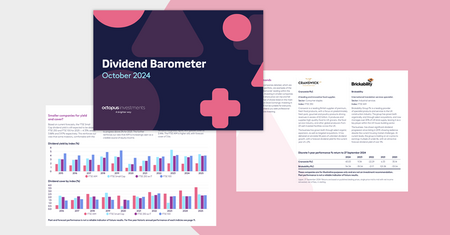With the tax changes announced as part of the March 2023 budget and the twists and turns in fiscal policy in 2022, it’s important to keep on top of how tax changes will impact you, and to explore how your financial and tax planning might change too.
How will the recent tax changes affect me?
The government has made it clear that everyone will need to pay more tax.
However, growth is as much a priority for the government as balancing the books. Because of this, there are ways you can support government policy objectives and claim money off your tax bill.
For investors, now could be a good time to look at tax-efficient investments and ensure you are making the most of available tax reliefs.
In this article we look at what you need to know about changes to income tax, dividend tax, pensions, capital gains tax, and inheritance tax.
And we show how tax-efficient investments can support your investment goals and tax planning in light of recent changes.
Why specialist tax-efficient investments exist
Specialist tax-efficient investments, namely the Enterprise Investment Scheme (EIS) and Venture Capital Trusts (VCT), direct money into smaller UK businesses that are increasing productivity and creating jobs. Investing in smaller companies, or companies not listed on the London Stock Exchange, is high risk. Recognising this, the government allows investors to claim tax reliefs to compensate for some of this risk. These investments primarily provide relief from income tax and capital gains tax.
Support for EIS and VCT investments and their importance for UK growth was called out explicitly in the Autumn statement.
A third investment, Business Relief (BR) – a longstanding relief from inheritance tax – has been supported by successive governments since 1976.
Find out more about tax-efficient investments here >>
Important note about risks
- Investments in smaller and early-stage companies are high risk. The value of an investment, and any income from it, can fall as well as rise, potentially to zero. Investors may not get back the full amount they invest.
- VCT, smaller, and unquoted company shares could fall or rise in value more than other shares listed on the main market of the London Stock Exchange. They may also be harder to sell.
- Tax reliefs depend on VCTs maintaining their qualifying status or portfolio companies maintaining their BR- or EIS-qualifying status.
- Tax treatment depends on individual circumstances and could change in the future.
- These investments have minimum holding periods. If shares are sold before the minimum holding period, reliefs claimed will have to be repaid. Other reliefs may no longer be available.
- We recommend seeking financial advice before making any investment decision.
Will I pay more income tax?
The personal allowance and income tax thresholds are frozen until at least April 2028.
The 45% additional rate band – which currently starts at £150,000 – will be reduced to £125,140 from April 2023. No other changes were made to income tax thresholds and rates remain unchanged.
Due to inflation, the amount of tax everyone pays will increase.
| Tax rate bands | Taxable income – tax year 2022/2023 | From April 2023 | Tax rate (other than dividends) – tax year 2022/2023 |
|---|---|---|---|
| Personal Allowance | Up to £12,570 | Frozen until 2028 | 0% |
| Basic rate | £12,571 to £50,270 | Frozen until 2028 | 20% |
| Higher rate | £50,271 to £150,000 | £50,271 to £125,140 and frozen until 2028 | 40% |
| Additional rate | Over £150,000 | Over £125,140 and frozen until 2028 | 45% |
What is the new dividend tax allowance?
Dividend tax rates increased by 1.25% from 6 April 2022. Dividends will continue to be taxed at the rates shown below. However, your allowance for the value of dividends you can receive before paying tax will reduce because of the recent budget.
The amount you can receive in dividends each year before paying tax will reduce from £2,000 to £1,000 effective from April 2023, and to £500 from April 2024.
| Tax rate bands | Dividend tax rate – tax year 2022/2023 |
|---|---|
| Basic rate | 8.75% |
| Higher rate | 33.75% |
| Additional rate | 39.35% |
Changes to the lifetime and annual pension allowances
The annual allowance has increased to £60,000 from 6 April 2023. This is the maximum individuals can contribute every year into their pension without incurring an additional tax charge.
The lifetime allowance has effectively been removed as of April 2023. This allowance, previously set at £1,073,100, was the amount an individual could contribute to their pension over their lifetime without incurring an additional tax charge.
These changes are welcome news for high earners who can now invest greater amounts in their pension tax efficiently.
However, while the pension lifetime allowance has been abolished, there is still a maximum cap on the annual amount that individuals can contribute to a pension. This highlights the importance specialist tax-efficient investments could have for some.
VCTs and EIS in comparison have higher annual investment limits – up to £200,000 and potentially up to £2 million respectively. These investments can complement pension planning and add an additional level of diversification. VCTs in particular can help investors target an additional stream of tax-free income. However, investors will need to consider their appetite for risk along with their capacity for loss, given VCTs and EIS are often significantly higher risk investments compared to pensions.
Claiming income tax relief with a VCT or EIS
You can claim up to 30% upfront income tax relief on the amount you invest in a Venture Capital Trust or Enterprise Investment Scheme-qualifying investment.
So, for example, if you invested £10,000, an amount of £3,000 could be taken off your income tax bill.
Investors in an Enterprise Investment Scheme (EIS) portfolio own shares directly in a concentrated number of early-stage companies. EIS typically appeals to experienced investors, who have increased capacity to bear investment risk and potential total loss of capital, who want to back companies with high growth potential. Investors have the opportunity to claim generous tax reliefs because of the higher level of risk involved, including upfront income tax relief, tax-free growth, loss relief, capital gains tax deferral, and inheritance tax relief.
Investors can claim up to 30% income tax relief on EIS investments on a maximum investment of £1 million in a single tax year, equivalent to income tax relief of £300,000 per tax year. The maximum investment increases to £2 million in a single tax year (equivalent to income tax relief of £600,000 per tax year), where at least £1 million is invested in Knowledge Intensive EIS companies.
Investors in a Venture Capital Trust (VCT) own shares in the VCT. The VCT invests in a diversified portfolio of early-stage companies and investors benefit from the VCT owning small stakes in a large number of companies.
Investors can claim upfront income tax relief equal to 30% of their investment up to the first £200,000 invested each tax year, equivalent to a maximum income tax relief of £60,000 per tax year. Any dividends paid by the VCT are also tax free.
Learn about the Enterprise Investment Scheme >>
Learn about Venture Capital Trusts >>
What is the new capital gains tax allowance?
Every year you get a tax-free allowance for capital gains, known as the Annual Exempt Allowance. The Autumn budget announced changes to this allowance.
The Annual Exempt Amount will reduce from £12,300 to £6,000 from April 2023. It will reduce further to £3,000 from April 2024.
This means more taxpayers will be dragged into a capital gains tax (CGT) liability when they dispose of assets.
No changes were made to CGT rates.
| Tax rate bands | CGT rate (non-residential assets) | CGT rate (residential property) |
|---|---|---|
| Basic rate | 10% | 18% |
| Higher rate | 20% | 28% |
| Additional rate | 20% | 28% |
Deferring capital gains with an EIS investment
A capital gain can be reinvested in Enterprise Investment Scheme-qualifying shares and be deferred over the life of the investment.
For example, if an asset was sold for £60,000 and cost £20,000, this would result in a gain of £40,000. This £40,000 could then be reinvested in EIS-qualifying shares in order to defer the gain.
To qualify for deferral relief, the reinvestment into EIS-qualifying shares needs to be made no earlier than 12 months prior to, or three years after, the original gain was made.
When the deferred gain comes back into charge, for example through the sale of the EIS shares, it’s subject to capital gains tax at the relevant rate at that time.
Guide to the Enterprise Investment Scheme >>
Inheritance tax
The nil rate band (an inheritance tax allowance for individuals worth £325,000) and the residence nil rate band (a further allowance of £175,000 applicable to the family home) will remain frozen until at least April 2028.
This freeze on allowances, combined with inflation, will mean the 40% tax on inheritance will continue to affect more families and more wealth.
Investing in Business Relief to plan for inheritance tax
Business Relief (BR) is a valuable relief from inheritance tax. It allows certain investments to be left to your beneficiaries free from inheritance tax. Compared to traditional inheritance tax planning, it offers speed, access, and the potential for growth, in exchange for the high risk of investing.
Inheritance tax relief is available when investing in certain unlisted trading companies or those listed on the Alternative Investment Market (AIM). This tax incentive can compensate for some of the additional risks associated with investing in such companies.
Whereas lifetime gifts or trust planning takes seven years before becoming exempt from inheritance tax, shares in a BR-qualifying company become zero-rated for inheritance tax after being held for just two years, provided the shares are still held at the time of death.
Unlike with a gift, the investor retains control over their investment and can request to sell the investment and get any proceeds back if they need to. However, shares sold or money taken out of the investment will no longer be exempt from inheritance tax. Please also bear in mind that liquidity isn’t guaranteed so you may not be able to access your capital quickly.
Learn about Business Relief >>
Should I make a tax-efficient investment?
Specialist tax-efficient investments are high risk and they won’t be for everyone. However, for suitable investors they can complement other investments, aid in tax planning, and contribute to the UK economy.
If you think these investments might be for you, get in touch with a financial adviser to find out more. We do not offer investment or tax advice.





